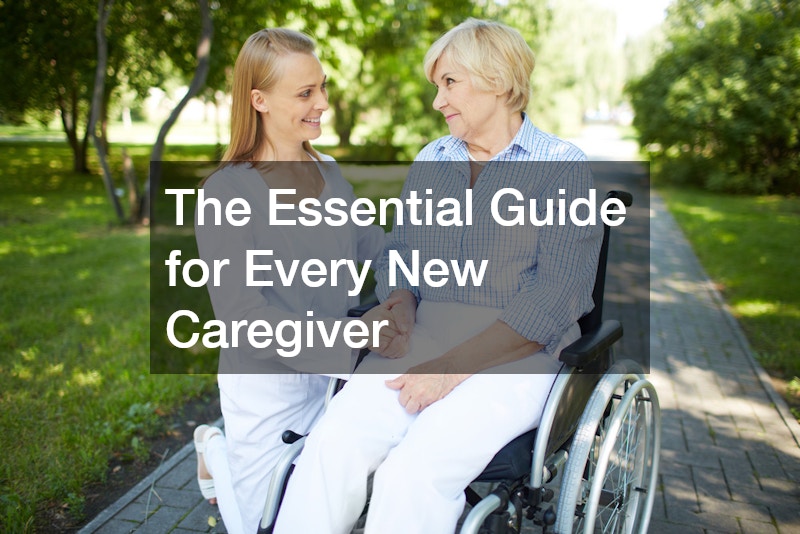
In today’s rapidly changing world, stepping into the role of a caregiver can be both rewarding and challenging. This guide aims to provide new caregivers with essential insights, practical tips, and helpful resources to make the caregiving journey more manageable and fulfilling.
Understanding Basic Care Tasks
As a caregiver, mastering basic care tasks is fundamental to providing quality care. This includes assisting with personal hygiene, which ensures the dignity and comfort of the care recipient.
Additionally, meal preparation is a key responsibility, requiring knowledge of balanced nutrition to promote health and well-being.
Medication management is another crucial task in caregiving, involving organizing medications and ensuring timely administration. Caregivers need to be aware of possible drug interactions and side effects to keep care recipients safe. Proper training and attention to detail in these areas are essential for successful caregiving.
Effective Communication Techniques
Communication is vital to understanding and meeting the needs of care recipients. Employing active listening skills helps in fostering a supportive environment where care recipients feel heard and valued. It is important for caregivers to use clear, concise language to minimize misunderstandings and build trust.
Incorporating non-verbal cues like eye contact and encouraging gestures strengthens communication, especially for those with limited speech. Tailoring communication methods to the individual preferences of each care recipient enhances interaction and cooperation. By being patient and empathetic, caregivers can navigate complex emotional landscapes to provide compassionate care.
Time Management and Prioritization
Effective time management is critical to balancing the myriad responsibilities of caregiving. Creating a structured daily routine helps optimize time, allowing caregivers to meet both personal and professional obligations. Prioritizing tasks ensures that immediate needs are addressed while future needs are planned for.
By utilizing tools like planners and mobile apps, caregivers can keep track of appointments and task lists, reducing stress. An adaptable mindset is important, as caregiving often requires flexibility to accommodate unexpected changes. Incorporating regular breaks and self-care into the schedule maintains energy and reduces burnout risk.
Recognizing Signs of Burnout
Understanding the early signs of caregiver burnout is crucial to preventing long-term stress. Symptoms like persistent fatigue, irritability, and withdrawal may indicate that burnout is developing. Recognizing these signs allows caregivers to take proactive measures before these feelings escalate.
Consulting healthcare professionals or therapists can provide insights and strategies tailored to individual needs. Reflecting on workload and emotional responses can also help caregivers identify the root causes of stress. This self-awareness is a valuable tool in mitigating burnout and preserving mental health.
Self-Care Strategies
Implementing effective self-care strategies is vital for maintaining equilibrium while caregiving. Regular physical activity, such as walking or yoga, contributes to physical well-being and stress reduction. Cultivating hobbies and activities outside of caregiving roles provides necessary mental diversion and fulfillment.
Mindfulness and meditation techniques can enhance emotional resilience, offering simple, accessible ways to manage stress. Scheduling routine health check-ups ensures caregivers remain physically capable of fulfilling their roles. Prioritizing self-care prevents feelings of depletion and enhances caregiving quality.
Seeking Support Networks
Connecting with support networks alleviates the challenges faced by new caregivers. Joining caregiver support groups can provide emotional solace, share experiences, and offer practical advice. These groups create an environment of camaraderie, reducing the feeling of isolation.
Utilizing community resources, such as respite care services, allows caregivers to rest, revitalizing them for their caregiving duties. These resources can guide caregivers towards additional help, educational opportunities, and peer support. Familiarity with available services ensures access to timely assistance and reinforces the caregiving framework.
Educational Programs and Courses
Gaining formal education in caregiving equips individuals with the skills necessary to perform their roles effectively. Numerous programs offer valuable insights into diverse medical conditions, treatment approaches, and care strategies. These courses empower caregivers with knowledge, enhancing confidence and care delivery.
Online platforms provide flexible learning options for caregivers juggling multiple responsibilities. These virtual resources offer the convenience of self-paced studying, facilitating continuous education. Educational programs broaden caregivers’ expertise, preparing them for a multitude of caregiving challenges.
Technology and Tools
The use of technology in caregiving introduces innovative solutions to streamline care processes. From remote monitoring systems to mobile health apps, technology offers numerous tools to enhance caregiving efficiency. These resources facilitate timely communication, task management, and health tracking.
Wearable devices, such as fitness trackers and emergency alert systems, ensure safety by monitoring vital signs and detecting anomalies. These advancements assist caregivers in maintaining meticulous care documentation and immediate response capabilities. Technological integration provides thorough care oversight while reducing the caregiver’s manual workload.
Being a new caregiver is a journey filled with learning and growth. By utilizing the resources and information available, caregivers can overcome challenges and provide compassionate care that makes a positive impact on the lives of those they care for. Remember, you are not alone in this journey, and there is always support and guidance available.



